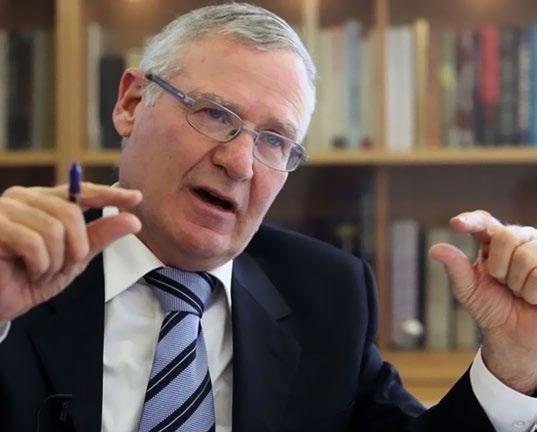
2 minute read
Learning From Leaders:
Middle East Initiative Study Groups
Each year, MEI brings to HKS leading practitioners to actively engage with our students, faculty, and other fellows, as well as to conduct their own research with Harvard’s unparalleled intellectual resources at their disposal. Among the most popular co-curricular activities for students are Senior Fellow-led study groups: discussion-based seminars ranging in length that focus on specialty topics, led by the world’s leading experts in those areas. Study groups help bridge what students learn in the classroom with how policy is implemented in the public sphere. On the following pages are highlights of MEI’s 2021-2022 study groups.
CULTURE, ART, AND POLITICS
Sultan Sooud Al Qassemi is an Emirati columnist and researcher who specializes in social, political, and cultural affairs in the Arab Gulf. He is also the founder of the Barjeel Art Foundation in Sharjah, UAE. In fall 2021, Sultan led a study group on “Investigating the Politics of Modern Middle Eastern Art.”
The study group examined Middle Eastern politics through the study of the region’s art production. “Many students approach the region of West Asia and North Africa through an exclusively political context,” Al Qassemi said. “It is essential to consider the cultural dynamics that influence political and social spheres across the region, such as the formation of national identities and championing of pan-Arab causes.”
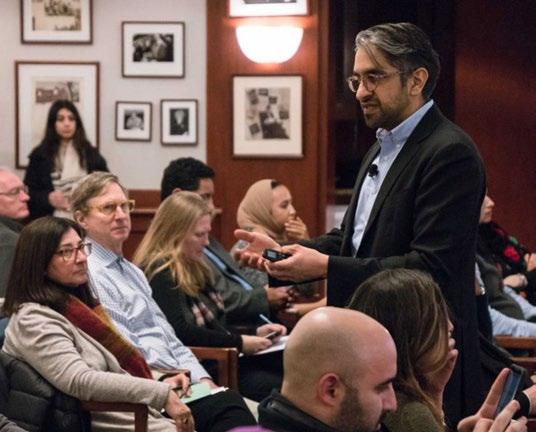
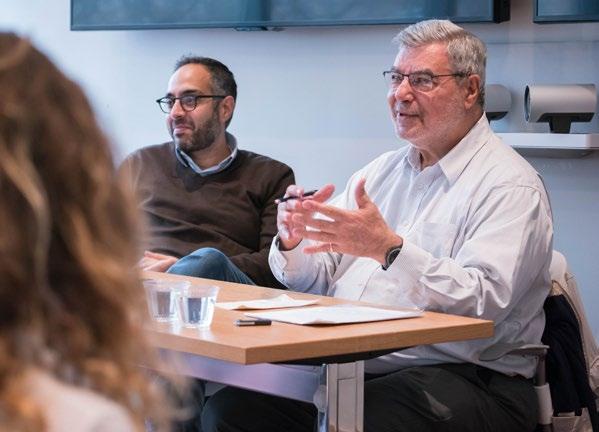
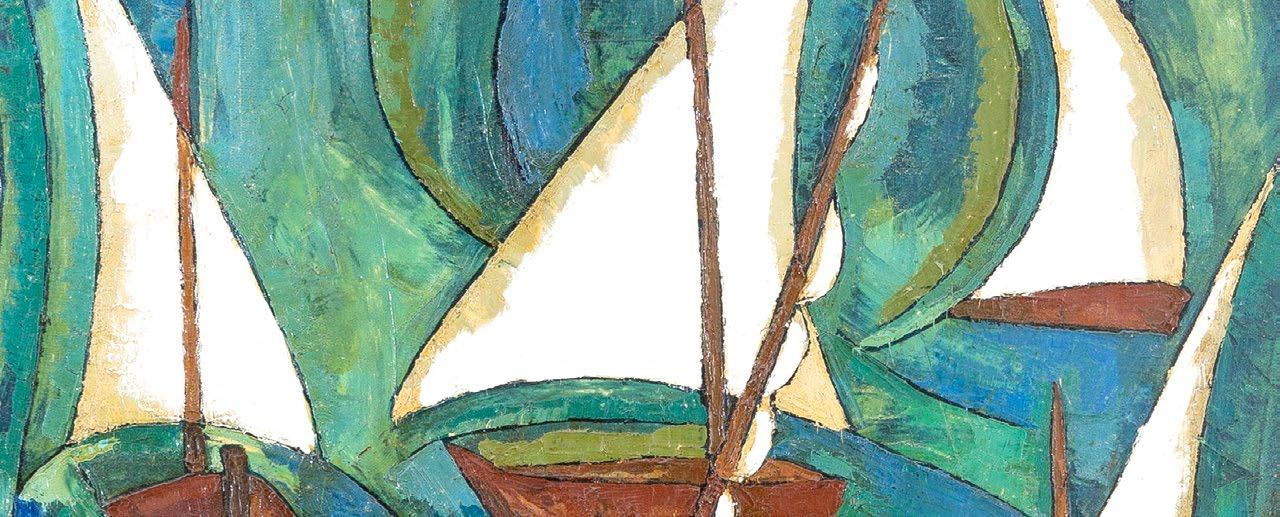
Al Qassemi’s syllabus guided students in exploring the relationship between the evolving political landscape and contemporary Arab art. Each discussion focused on a specific art piece in its political context, which helped students better understand that political context and the artwork itself.
Conflict Resolution
Rami Khouri led an eight-part study group titled, “I See You. I Hear You. I Recognize Your Pains and Your Rights. Can Mutual Acknowledgement Renew Israeli-Palestinian Peacemaking?” Khouri’s syllabus drew from his original research conducted over 20 years on what Israelis and Palestinians need from each other—and what they are prepared to offer the other—to reach a permanent peace agreement. Within the context of the Israeli-Palestinian conflict, students considered the many dimensions of “moral compensation,” an approach to conflict resolution in which parties acknowledge their own past actions in the conflict; make amends in non-material (“moral”) ways, such as taking responsibility, issuing apologies, erecting public memorials, etc.; and meet the bottom-line demands of the other if the other meets their own demands simultaneously. Khouri reflected, “Moral compensation touches raw nerves and deep wounds, but it offers an opportunity to overcome peace-making obstacles that have bedeviled us for 75 years.”
Policy Reform
Dr. Omar Razzaz, former Prime Minister of the Hashemite Kingdom of Jordan, taught a study group on “Policy vs. Politics: Insights from the Field in Reforming Social Protection, Education, Taxation, and Public Sector Accountability.” Attended by over 80 Harvard students, the study group’s curriculum stemmed from Dr. Razzaz’s decades of public service in Jordan, with a focus on implementing political and economic reform. Through exploring reform attempts in social protection, education, taxation, and public sector accountability, the group identified building blocks in the reform process and potential pitfalls along the way. Specifically, while “realism” has taught us that “politics is the art of the possible,” students were challenged to think about how to manage short-term political interests without losing sight of longer-term policy objectives.
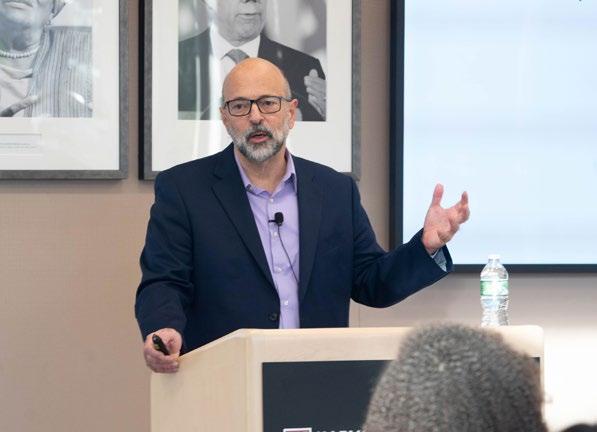
National Security
Maj. Gen. (ret.) Amos Yadlin led a study group for Harvard students on “Israeli National Security in a Shifting Middle East: Historical and Strategic Perspectives for an Uncertain Future.”
Drawing on Yadlin’s extensive experience as an Israeli military officer and national security official, the study group examined the critical security junctures in Israel’s history, explored the security challenges that Israel presently faces, and considered the future of Israel’s security and that of the region more broadly. Throughout the ten sessions, students were encouraged to examine key decision points from the perspective of different Israeli military and political leaders. Over the course of the study group, Yadlin incorporated guest lectures from top military and political leaders, including Colin Kahl, Tzipi Livni, Ambassador Yousef Al-Otaiba, and others.
